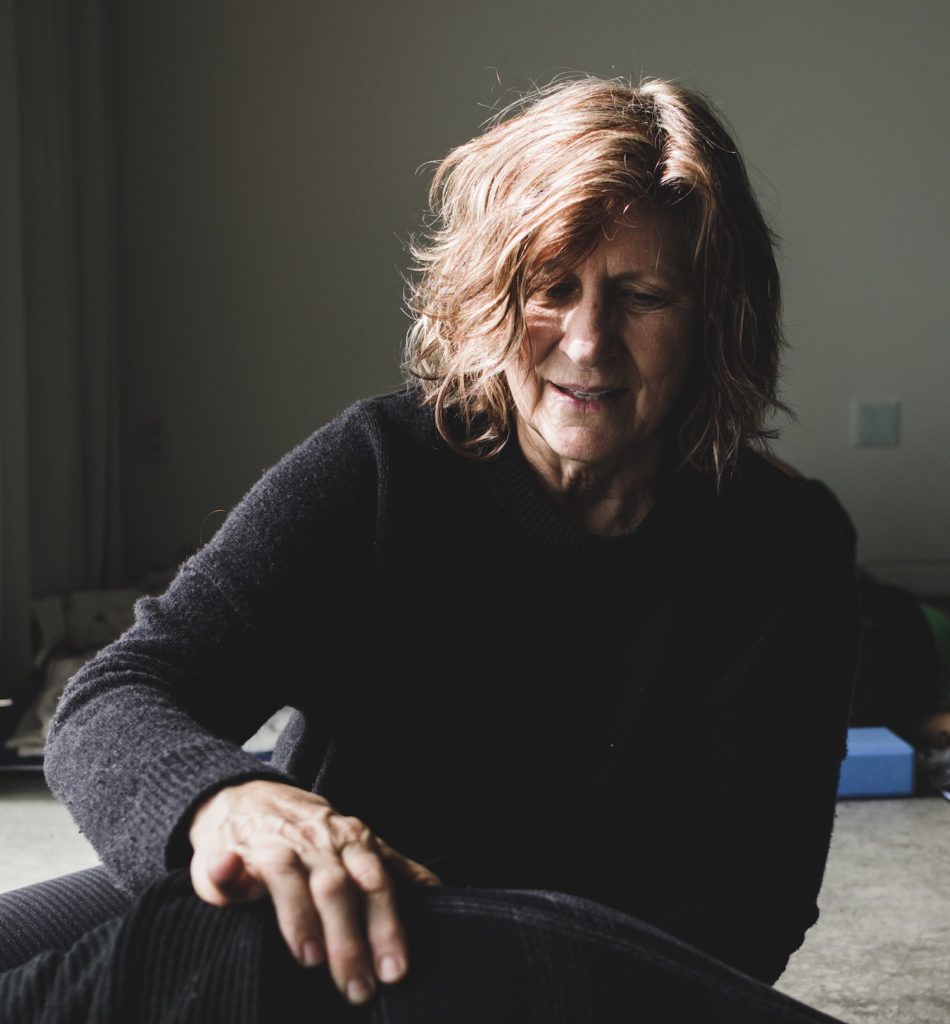Q: Is pain in the hip, groin, and low back caused by psoas problems, especially when sitting for long periods of time? I do the simple relaxation technique (constructive rest position) and it works, but it does not last.
A: The key phrase within your question is “sitting for long periods.” How one sits will either support the healthy psoas or engage the psoas for support. Bucket chairs (designed with scooped bottoms), found in most office chairs and car seats, offer little or no support for the pelvic basin. Rather then sense support from the bottom (sitting on your sits bones), the spine collapses and falls behind weight bearing balance. The psoas gets involved countering the lack of skeletal support. Try sitting on a chair with a firm cushioned seat that is FLAT or place a wedge on top of the chair to create and encourage both skeletal support, muscular integrity, and open hip sockets. The wedge helps lift the hips slightly higher than the knees, which is very important when sitting for periods of time. It is also important to move about and walk regularly.

